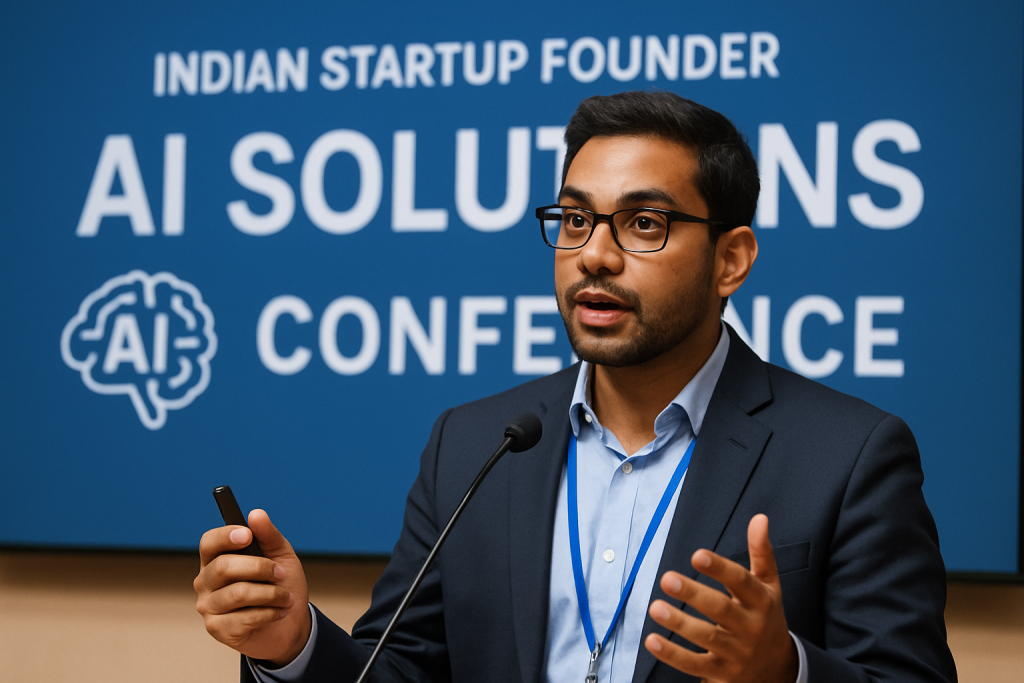India’s tech leaders are calling for a different approach to artificial intelligence. While global powers race to dominate AI technology, Indian businesses should focus on solving real problems.
Nandan Nilekani, co-founder and non-executive chairman of Infosys, shared this vision at a recent Asia Society event in Mumbai. His message is clear: AI will concentrate wealth and power, but India can create a different path.
Why It Matters Now
AI adoption in India faces a unique opportunity. Unlike Western countries and China investing billions in AI research, India can apply existing AI tools to immediate social challenges.
Nilekani said: “Obviously, there is going to be a concentration of wealth and power with AI … we can’t fight that. Forces at play are much bigger than any of us. But in our zone of influence, we have to do what we can to create a different paradigm. AI will be very well used in India but in a way that helps people’s lives, helps them to learn languages, get better healthcare, get better education.”
This approach offers Indian startups and SMBs a clear competitive advantage. Instead of competing in expensive AI development, they can focus on practical AI applications.
How It Solves Key Problems
Smart AI deployment can address India’s biggest challenges. Healthcare and education serve over a billion people. These sectors need efficient, scalable solutions.
AI tools can help businesses deliver better services. Language learning platforms can serve diverse Indian markets. Healthcare apps can reach remote areas. Education technology can scale quality teaching.
Nilekani emphasized this practical AI approach. He recommended avoiding the expensive AI race and instead applying tools to solve real world problems.
Strategic Advantage for Indian Businesses
The frugal innovation model offers Indian companies a unique edge. Nilekani pointed to successful examples like Aadhaar and UPI (Unified Payments Interface).
These projects demonstrate design simplicity and cost effectiveness. UPI allows sending Re 1 for free – something no other country achieves. This frugal approach can be applied to AI education solutions.
As Nilekani noted, “You have to innovate to keep ahead. Otherwise, you will have negative risk-to-rewards and revolutions and so on. So, I think, by force, we will have to innovate to solve the problems of a billion people.”
The key lesson: keep designs simple and accessible. Make AI tools that work for India’s economic realities.
What Business Leaders Should Know
Nilekani rejected the universal basic income (UBI) concept. Some experts suggest UBI will become necessary as AI replaces jobs. They envision people playing video games while receiving government payments.
He disagreed with this dystopian view. “I don’t agree with the vision that these guys are propounding… that is a dystopian idea,” Nilekani said.
Instead, AI should “amplify human potential” and make people’s lives better. This creates business opportunities for companies that enhance rather than replace human capabilities.
Market Impact in India
The country’s service delivery capabilities can be amplified using AI tools. Government services, healthcare systems, and education platforms all benefit from AI integration.
Nilekani stressed that innovation must consider low purchasing power levels. Successful AI applications in India need “frugal” design principles.
This creates opportunities for Indian businesses to develop cost-effective AI solutions. Companies can build products that serve both domestic and international markets.
Strategic Takeaways
Indian business leaders should focus on practical AI applications rather than theoretical developments. The concentration of AI wealth and power is inevitable, but companies can still create value.
Success requires understanding India’s unique constraints and opportunities. Low costs, large scale, and diverse needs create specific market conditions.
As Nilekani concluded, design simplicity remains crucial. The UPI project documentation was just one page long. This simplicity enabled massive adoption and success.
Businesses should prioritize solving real problems over chasing AI trends. The market rewards practical AI solutions that improve lives and create genuine value.


